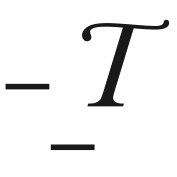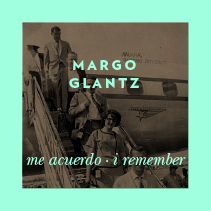A poet you especially like
We asked the following six poets if they could recommend a poet they especially liked.
This is what they answered.
Imagen de Claudia Menéndez
Alan Mills:
I recommend Marosa di Giorgio for her libertine, free, wild writing, gently extended like the forgotten part of a dream, or like an uncharted territory where the most hidden desires germinate. When reading her, one suspects that poetry is the meeting place of fiction and magic. Reading her feels like running toward the inside of a painting: it’s a flight but at the same time it’s a journey toward a primitive truth which used to elude us. Marosa de Giorgio is experimental because she recognizes herself as the bug of her own laboratory, in her verses we see her dissected and alive, pulsating with a twisted humor, with extreme passion, with cold intelligence. Her poetry has fire, has beauty and ugliness, has the devil.
Jerómino Pimentel:
I would recommend any reader forget everything they know or think they know about Vallejo and his work, especially the anthologized poems, the borrowed sadnesses and those caricatures with which we tend to think of the names that, by virtue of their greatness, become ungraspable. Even if you don’t follow this advice, I must warn you that your defenses won’t do you any good. Vallejo has the incredible capacity of disarming and nurturing you at the same time, as if the latter were a consequence of the former. Starting at that point, everything will be different: words will have other colors, colors other shades, emotions other names, and your world will be transformed in the way good fruit becomes ripe: from earth to heaven, from green to sweet, from seed to seed. For a moment it might seem that nothing has happened, but an inner tremor, let’s say, syllabic, will give away the lethal effect. Vallejo isn’t read, Vallejo happens.
Laura Wittner:
I was never taken with the choices technique/emotion or cultured/popular. How is it that one thing eliminates the other? Because of prejudice, because of convenience. Let’s be frank: one can learn how to measure, to accept that poetry is music at its base, that a poem that works is a little machine with an engine and a structure. And that doesn’t stop life with its emotions and perceptions from entering the little machine and allowing itself to become literature.
Well: the person who understands all of this is the Uruguayan poet Circe Maia. She catches with a few lines the most subtle sensations in the world: those we all feel walking down the street, or standing next to the window, or making breakfast.
And she says them perfectly: we want her to tell them all.
Ana Merino:
I’m full of fleas, yes, the fleas of John Donne inhabit my heart. They crept out of hiding in verses and filtered in through the skin of my eyelids. Fleas that became water drops and survive love and love’s breath with its walking-dead rhythm.
I’m full of dreams, of ghosts which inhabit fear and find me changed into a different person. I’ve become existential slavery and being alone does not weigh down on me, because living is knowing how to find oneself.
Leonardo Sanhueza:
I never get tired of recommending Pablo de Rocka’s work. Like Salinger or Vonnegut, the great huaso (Chilean cowboy) of Licantén has a repertoire for the laymen, the initiated, the fans, but his perpetual and masterful book, the one I love the most, is Escritura de Raimundo Contreras (1929), to the point where I don’t take any reader of poetry who hasn’t read it seriously. It’s a long poem in prose which renovates the form of cosmogony, producing a sexual epic of Chilean-ness out of rural, agrarian life, one in which even lettuce wilts moistly with shyness. A pornographic work which came way before Tinto Brass, an immortal sensuality which with ruthless tenderness connects grapes and peaches and vegetables and human sweat into one single desire: that of remaining beyond death, perhaps, protected by the illusion that love and tragedy are one in the Rokhian figure of the “discovery of happiness.”
Luis Felipe Fabre:
Maybe it’s because I’m sick of poets. Maybe it’s because books of poetry seem to me to be a circle –more pointless than vicious– from which one must try to escape. Maybe it’s because poetry seems to me to be unsustainable, impossible, unbearable, yet I cannot give it up, that I’m often fascinated by those texts which engage with poetry from other literary genres, which use it, which cut across it and take it elsewhere: outside, far from the poem. Such is the case of The Invention of Love (there’s a beautiful translation published by Adriana Hidalgo) by Tom Stoppard: a dramatic text which uses the pretext of A. E. Housman’s life and work to revisit classic culture and the poetry of Catullus, Horace, Propertius, Provencal troubadours, and which features A special appearance by Oscar Wilde, who almost makes a cameo. The reflection on poetry and truth, on poetry and life, on poetry and uselessness, the problems of translation and the philological minutiae, are brilliantly taken up in this text which, more than text, actually signifies the invention of a context where poetry, once again, becomes possible.
Previous entries:
A short story writer you especially like... [Antonio Ortuño, Ana María Shua, Guillermo Barquero, Sergi Pàmies, Andrea Jeftanovic, Slavko Zupcic]
Beers with a character... [Ricardo Sumalavia, Enza García, Marta Sanz, Sergio Chejfec, Mercedes Estramil, Luis López-Aliaga]
If not a writer... [Liliana Blum, Giovanna Rivero, Enrique Vila-Matas, Héctor Abad Faciolince, Jacinta Escudos, Francisco Díaz Klaassen]
This is what they answered.
Imagen de Claudia Menéndez
Alan Mills:
I recommend Marosa di Giorgio for her libertine, free, wild writing, gently extended like the forgotten part of a dream, or like an uncharted territory where the most hidden desires germinate. When reading her, one suspects that poetry is the meeting place of fiction and magic. Reading her feels like running toward the inside of a painting: it’s a flight but at the same time it’s a journey toward a primitive truth which used to elude us. Marosa de Giorgio is experimental because she recognizes herself as the bug of her own laboratory, in her verses we see her dissected and alive, pulsating with a twisted humor, with extreme passion, with cold intelligence. Her poetry has fire, has beauty and ugliness, has the devil.
Jerómino Pimentel:
I would recommend any reader forget everything they know or think they know about Vallejo and his work, especially the anthologized poems, the borrowed sadnesses and those caricatures with which we tend to think of the names that, by virtue of their greatness, become ungraspable. Even if you don’t follow this advice, I must warn you that your defenses won’t do you any good. Vallejo has the incredible capacity of disarming and nurturing you at the same time, as if the latter were a consequence of the former. Starting at that point, everything will be different: words will have other colors, colors other shades, emotions other names, and your world will be transformed in the way good fruit becomes ripe: from earth to heaven, from green to sweet, from seed to seed. For a moment it might seem that nothing has happened, but an inner tremor, let’s say, syllabic, will give away the lethal effect. Vallejo isn’t read, Vallejo happens.
Laura Wittner:
I was never taken with the choices technique/emotion or cultured/popular. How is it that one thing eliminates the other? Because of prejudice, because of convenience. Let’s be frank: one can learn how to measure, to accept that poetry is music at its base, that a poem that works is a little machine with an engine and a structure. And that doesn’t stop life with its emotions and perceptions from entering the little machine and allowing itself to become literature.
Well: the person who understands all of this is the Uruguayan poet Circe Maia. She catches with a few lines the most subtle sensations in the world: those we all feel walking down the street, or standing next to the window, or making breakfast.
And she says them perfectly: we want her to tell them all.
Ana Merino:
I’m full of fleas, yes, the fleas of John Donne inhabit my heart. They crept out of hiding in verses and filtered in through the skin of my eyelids. Fleas that became water drops and survive love and love’s breath with its walking-dead rhythm.
I’m full of dreams, of ghosts which inhabit fear and find me changed into a different person. I’ve become existential slavery and being alone does not weigh down on me, because living is knowing how to find oneself.
Leonardo Sanhueza:
I never get tired of recommending Pablo de Rocka’s work. Like Salinger or Vonnegut, the great huaso (Chilean cowboy) of Licantén has a repertoire for the laymen, the initiated, the fans, but his perpetual and masterful book, the one I love the most, is Escritura de Raimundo Contreras (1929), to the point where I don’t take any reader of poetry who hasn’t read it seriously. It’s a long poem in prose which renovates the form of cosmogony, producing a sexual epic of Chilean-ness out of rural, agrarian life, one in which even lettuce wilts moistly with shyness. A pornographic work which came way before Tinto Brass, an immortal sensuality which with ruthless tenderness connects grapes and peaches and vegetables and human sweat into one single desire: that of remaining beyond death, perhaps, protected by the illusion that love and tragedy are one in the Rokhian figure of the “discovery of happiness.”
Luis Felipe Fabre:
Maybe it’s because I’m sick of poets. Maybe it’s because books of poetry seem to me to be a circle –more pointless than vicious– from which one must try to escape. Maybe it’s because poetry seems to me to be unsustainable, impossible, unbearable, yet I cannot give it up, that I’m often fascinated by those texts which engage with poetry from other literary genres, which use it, which cut across it and take it elsewhere: outside, far from the poem. Such is the case of The Invention of Love (there’s a beautiful translation published by Adriana Hidalgo) by Tom Stoppard: a dramatic text which uses the pretext of A. E. Housman’s life and work to revisit classic culture and the poetry of Catullus, Horace, Propertius, Provencal troubadours, and which features A special appearance by Oscar Wilde, who almost makes a cameo. The reflection on poetry and truth, on poetry and life, on poetry and uselessness, the problems of translation and the philological minutiae, are brilliantly taken up in this text which, more than text, actually signifies the invention of a context where poetry, once again, becomes possible.
Previous entries:
A short story writer you especially like... [Antonio Ortuño, Ana María Shua, Guillermo Barquero, Sergi Pàmies, Andrea Jeftanovic, Slavko Zupcic]
Beers with a character... [Ricardo Sumalavia, Enza García, Marta Sanz, Sergio Chejfec, Mercedes Estramil, Luis López-Aliaga]
If not a writer... [Liliana Blum, Giovanna Rivero, Enrique Vila-Matas, Héctor Abad Faciolince, Jacinta Escudos, Francisco Díaz Klaassen]








